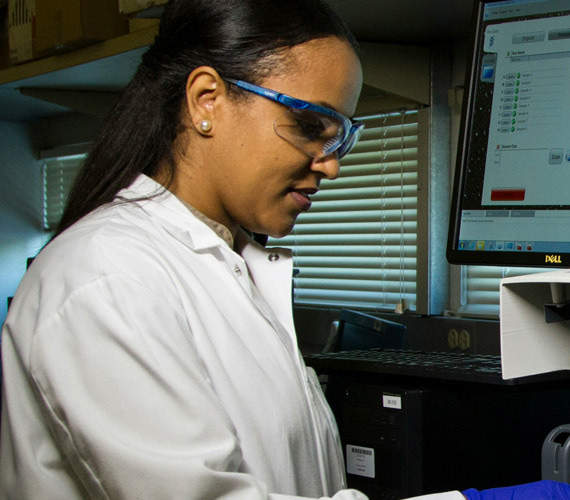If you are considering earning a bachelor’s in public health or even a master’s degree in public health, you might have questions about what exactly you can do with the degree once you graduate.
The truth is, there are many potential public health careers that you might pursue once you’ve completed your education. One such path is to become a public health program coordinator, where you’ll have the opportunity to directly craft, oversee and implement projects that improve the health outcomes in the communities you serve.
Below, we take a look at what public health program coordinators do and the specific steps that you’ll ultimately need to take in order to enter the field.
What Does a Public Health Program Coordinator Do?
Public health program coordinators are health professionals who, as their title implies, are responsible for overseeing health initiatives in their communities. They are also sometimes known as community health program coordinators or, simply, health program coordinators.
Typically the job will include designing, implementing, and managing community health and wellness programs. As such, public health program coordinators will often supervise other public health professionals, such as community health workers and health educators. They must also be comfortable managing and monitoring schedules and budgets to ensure that everything runs smoothly.
Because they are involved in designing public health initiatives, program coordinators should be comfortable working with tracking information—collecting it, organizing it, and understanding it—in order to identify trends that can help them craft their programs.
Where Do Public Health Program Coordinators Work?
Public health program coordinators are employed by any organization that facilitates public health initiatives. This includes community-based clinics, hospitals, long-term care facilities, schools, local and state government agencies, and other community-based organizations. Health program coordinators can be employed by the government or private sector, as well as in a non-profit or for-profit capacity.
How Much Does a Public Health Program Coordinator Make?
Public health program coordinators often play a managerial role within their organizations. They often oversee schedules, budgets, and personnel as part of their daily tasks. As such, they tend to be paid a competitive salary of roughly $78,618 per year on average. This number can, of course, vary depending on a number of factors including years of experience and geographic location, but will typically fall somewhere in the range of $60,635 to $98,445 per year.
In Boston, public health program coordinators earn a higher salary than the national average. The base salary for this role ranges from $44,477 to $59,460. While the base average is $51,321, this is also highly dependent on the level of education you have received. For example, applicants who have completed a bachelor’s degree receive compensation on the lower end of the scale (around $48,767). The highest-paid coordinators earn just under $60,000 per year.
Steps to Become a Public Health Program Coordinator
1. Earn a Related Bachelor’s Degree
In order to become a public health program coordinator, it’s generally advised that you earn a bachelor’s degree in a related field due to the fact that most organizations who employ coordinators will only consider applicants who have earned a degree.
Typically, this will mean earning a bachelor’s in public health, a degree that translates over directly to the job title. That being said, it may also be possible to work as a public health program coordinator after earning a bachelor’s degree in social work, nursing, or other related fields as well.
2. Gain Experience
In the field of public health, hands-on experience is very important and is a key to advancement. With this in mind, gaining experience is one of the most important steps that you can take toward breaking into the field, regardless of the position you are looking for.
Internships and practicums are an excellent way for students to gain much needed experience in the field. They also help build their skills and offer many networking opportunities with other professionals. However, the real value in these internships is the space it gives students to rule out areas that they are not interested in. This makes it important to carefully evaluate potential programs by whether or not they offer internship opportunities.
At Regis College, students are taught how to promote health education, develop programs and policies, identify and monitor diseases, and conduct research. Some internship placements have included hospitals, community agencies, health care organizations, local health departments, and nonprofit organizations.
As noted earlier, public health program coordinators often fill something of a managerial role. This means that you can also gain experience in an entry-level position (for example, by working as a health educator or community health worker) before using that experience to pivot into the role of coordinator.
3. Advance with Higher Education
In order to advance into more senior level roles, you’ll most likely need to earn a master’s degree in public health or health administration. This might not seem like a clear path when starting your career, but after working in the field, you’ll have a better sense of whether or not this makes sense for you.
In evaluating graduate programs, be sure to consider whether or not any faculty members are involved in the kind of work you’re interested in, and make sure that the curriculum includes coursework and topics that you are passionate about.
Not Just One Potential Career
Not sure if this is the right career for you? The good news is that you have plenty of other options to choose from as well. You could, for instance, become a community health worker, where you’ll perform a range of duties promoting public health in the communities that you serve. Or you might decide to become a health educator, promoting more health conscious decisions/choices to the members of your community. Or you might choose to break into public health research, or pursue a career in epidemiology.
By earning your bachelor’s degree in public health, you will set yourself up for many rewarding careers. The interesting aspect of a career in public health is the flexibility that your degree has when applied in the job market. For example, you could start off as a program coordinator and transition to a director role. This experience can then be translated to roles like a grants manager, policy advocate, and even an associate division director.
Let your passions and skills lead you down whatever path best aligns with your career ambitions. The right fit is where you will be able to have the most, and direct, impact on the lives of others.




